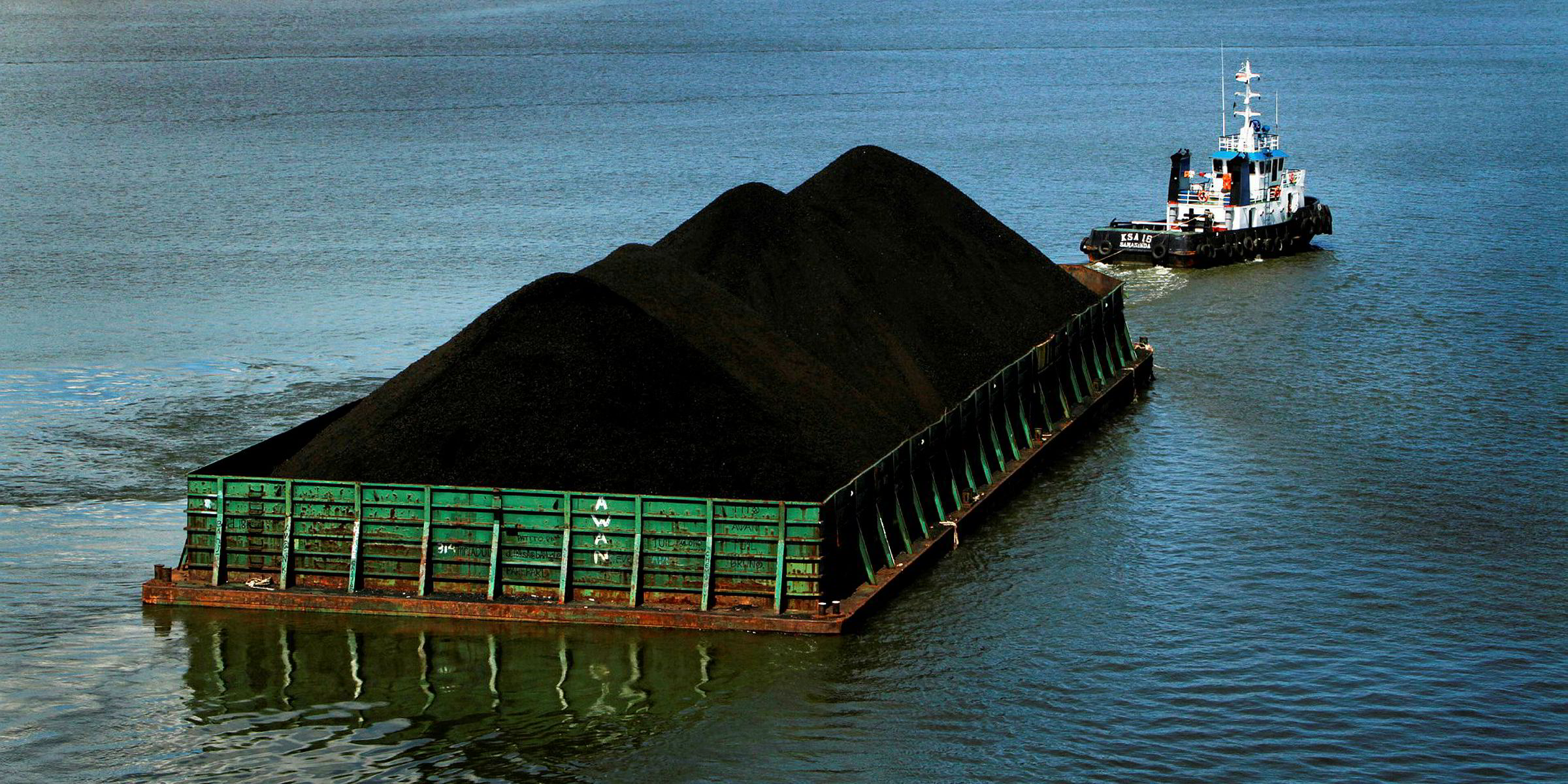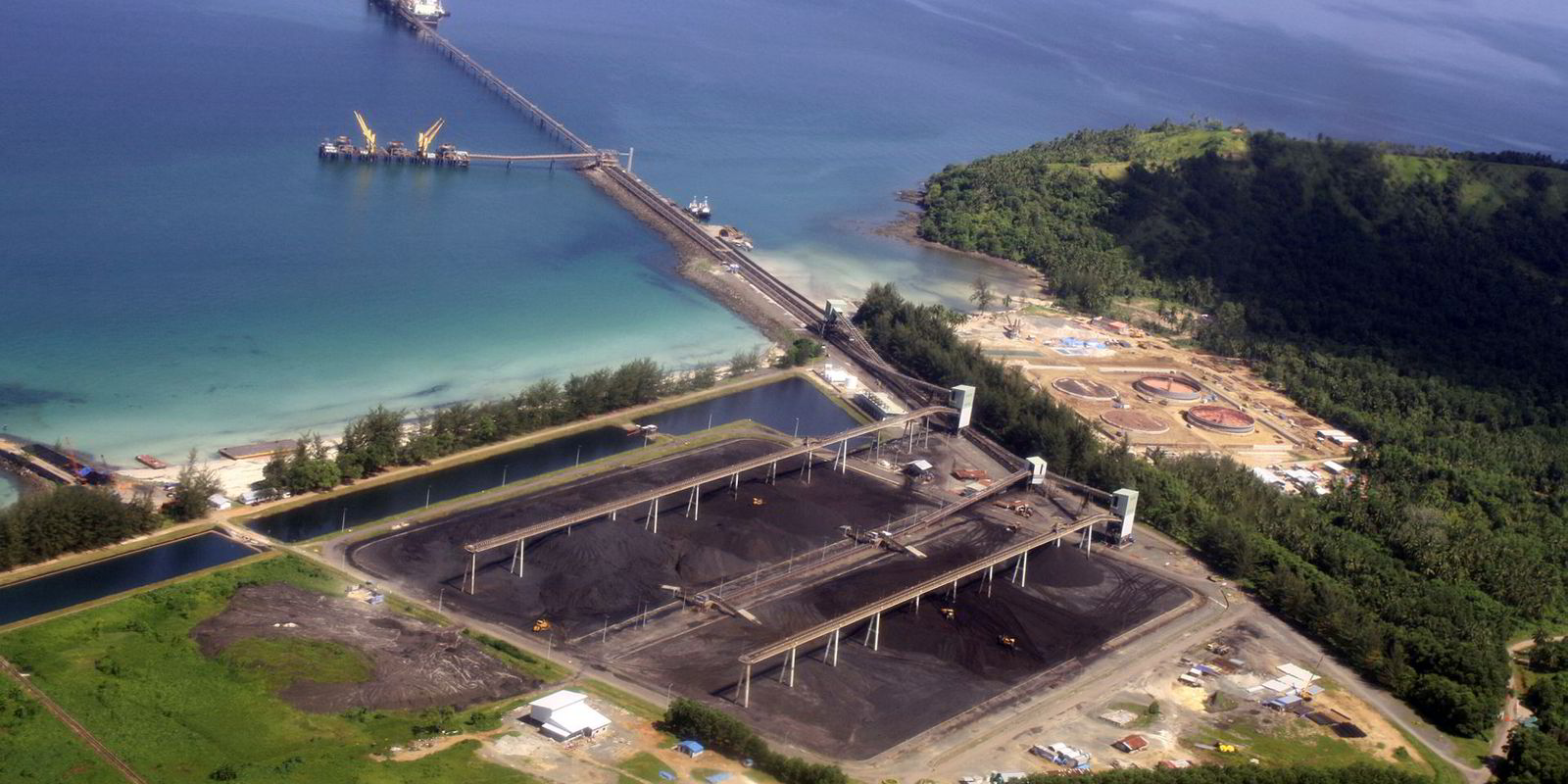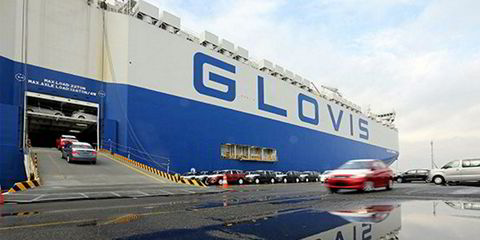The new cost, insurance and freight (CIF) contract requirements mandated by the Indonesian government for the export of coal and palm oil cargoes are not being welcomed by trade bodies in the country.
Industry groups claim the South East Asian nation is not ready and that the time frame for implementation is too short.
They fear there will be widespread chaos and supply disruptions come 1 May — the day the law is set to be enforced.
Hendra Sinadia, executive director of the Indonesian Coal Mining Association, told reporters at a recent coal conference in Jakarta that the impact is already being felt.
“There was some information, several potential buyers from abroad put on hold making any new contracts,” Sinadia said, according to Reuters.
Sinadia described the new rule as “dangerous”, as it could affect export volumes and state revenues if shipping contracts had to be renegotiated to shift from free-on-board contracts to CIF.
Commodities traders in Singapore told TradeWinds that the lack of guidelines had forced them to adopt a wait-and-see attitude, although they do not believe the end result would work in their favour.
“Of course it will cost us more," said one coal trader, who spoke on the condition of anonymity as he was not authorised to speak on behalf of his company. "If an Indonesian shipowner arranges a charter of contract of affreightment [COA], they will add their profit margin on top, and the cost will be passed on to us.”
Other industry observers fear that exports will grind to a halt if the Indonesian government zealously implements the rule on 1 May as the country’s unprepared maritime community will not be able to cope.
In the past, Indonesian authorities have implemented with great gusto new laws regulating commodities exports. A law banning unprocessed mineral ores — implemented in 2014 — saw dozens of partially loaded ships seized in the middle of loading when the midnight deadline kicked in, while dozens more were left swinging at anchor off Indonesian ports with their charterers declaring force majeure.
It took years for the legal mess — ranging from getting ships released to arbitration battles over cancelled charters and COA contracts — to be cleared up.
At the same time, the Indonesian mineral mining industry ground to a halt as buyers sought supplies elsewhere. Realising that the expected downstream investment and development did not pan out as predicted, the Indonesian government rolled back major parts of the ban in 2017.
Market participants fear that history might repeat itself.





